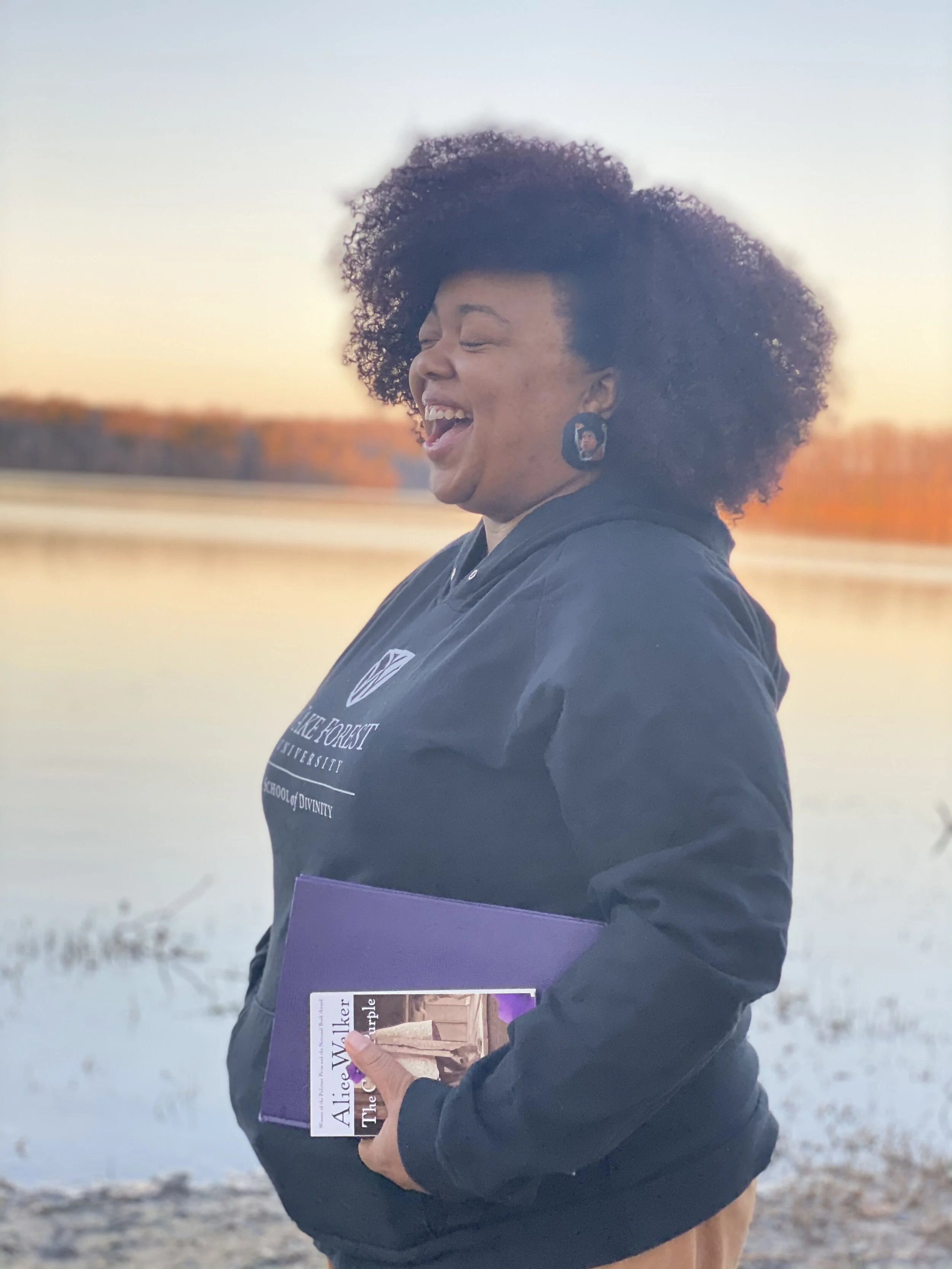Stories are what connect us… Stories of the land, stories of the water, stories of the people.
In 1982, The Color Purple, a novel written by Alice Walker, was published. The book was a pivotal text that captured some of the complex perspectives of Black life in the Southern US during the early to mid 20th Century. In the storyline, readers uncover the “complex perspectives” through the main character and narrator, Ciely’s letters to God. Through these letters, the reader experiences themes of celebration, love, loss, lament, the profane, and the sacred. In 1985, producer Steven Spielberg turned the vivid images Walker crafted through her writing into motion picture through the novel's film adaption. Many of the film's scenes were filmed in the Yadkin Pee-Dee River Basin of North Carolina in Anson and Union Counties.
Although the Color Purple was set almost a century before I was born, the story resonated with me. As I made and continue to make sense of my lived experience as a queer, black, low-income woman from the South, I see much of my own story in Ciely and the other characters within the book and film. In addition, I see the stories of my mother, my grandmother, and my great-grandmother. As I have listened to other black folks and others from diverse racial, ethnic, age, socio-economic, gender, and sexual orientations, I have heard the universal ways individuals and communities have felt connected to this story.
A year ago, this month around the globe, Covid -19 became a part of each of our stories in some way or another. As the pandemic unfolded, we unpacked and reimagined our lives as we all expressed loss and transition in some form or another. Several things happened for me as I wrestled amid the pandemic 1) I re-encountered the Color Purple (both the book and film) 2) I learned that much of The Color Purple was filmed within the Yadkin Pee-Dee River Basin through an Instagram page called History Before Us, and 3) I felt a call to reconnect to the outdoors which led to almost daily visits to the riverbank of the Yadkin. For the last 12 months, the Yadkin's riverbank has served as a place of reflection, respite, and a receptacle of tears as I have continued to try to make sense of the world around me.
Ten years after making the film, Walker released the book, The Same River Twice: Honoring the Difficult, a collection of meditations, journal entries, notes, and articles on the filming of the movie adaptation of the Color Purple. One thing she wrote that resonated with me as I reflect on what role the river played in my life over the last year was, “You can never really go back to the same waters. Not only are you no longer the same, but neither are the waters you left. The current has changed. The elements of nature have affected the stream. When you return, although it appears the same, it really is a different river, and you are a different person. Therefore, you cannot cross the same river twice.” Later, she concludes the book by saying…“to fully encounter [other’s stories] is a sacred act and leads to and through the labyrinth. To the river. Possibly to healing. A “special effect” of the soul.”
It’s our stories that inspire YRK’s work and inform our mission to “protect and enhance the Yadkin Pee Dee River basin through education, advocacy, and action.”
What is your story of the Yadkin-Pee Dee River?
Please share your story with us here.

